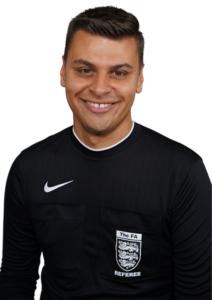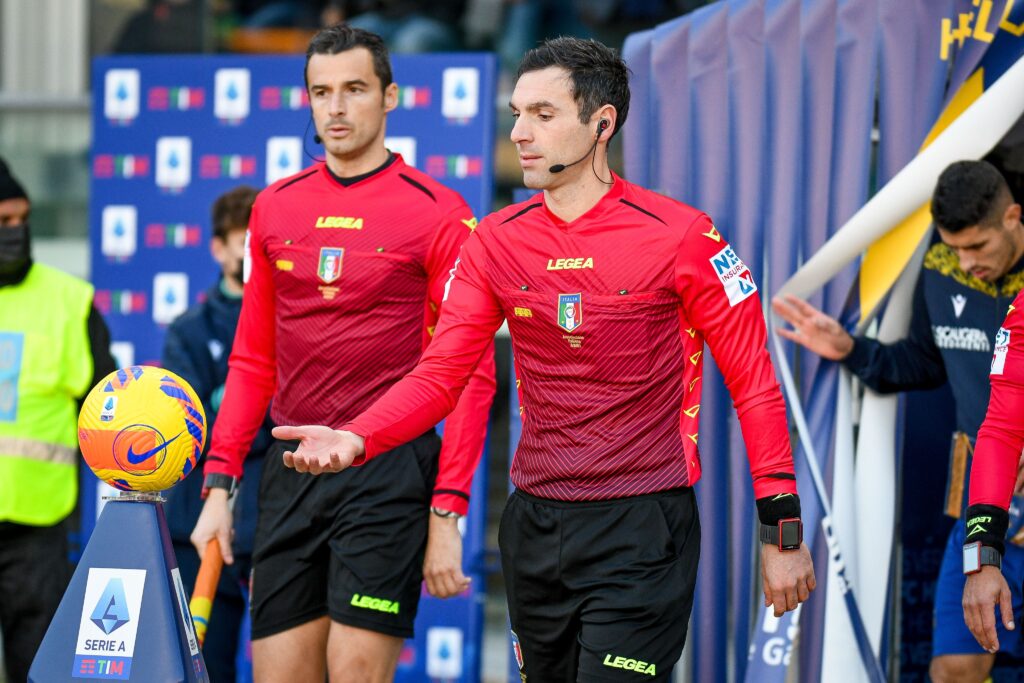Emotional intelligence is a popular construct associated to business, education, health and more recently refereeing. There is clear evidence to substantiate that emotional intelligence is beneficial for performance out in the middle. A number of characteristics associated to emotional intelligence include, self-awareness, self-regulation, motivation, empathy and social skills. This Blog is an explainer to how emotional intelligence can be useful for officials.
1) Self-awareness
The concept of self-awareness alludes to being aware of the situation around you and thinking beyond. Thinking beyond could also be termed ‘thinking outside the box.’ Referees who wish to enhance their performance levels must be self-aware. Self-awareness alludes to emotion of oneself. A good official will be in control of their emotions and demonstrate a great deal of awareness of their onfield performances. Developing self-awareness can occur for referees through a range of possibilities. For example, when appointments are made, officials should be aware of the emotions that they can experience. Referees who are selected to take charge of games will feel different emotions as opposed to those that are not selected. Therefore, officials must be self-aware of the fluctuating emotions experienced during this time and be ready to address and issues.
TIPS:
Identify – practices that enable you to become self-aware of your emotions (both positive and negative) as you experience these during each training session/matchday.
Develop – routines that allow you to enhance your own self-awareness when dealing with the challenges presented by players, club officials and spectators.
Enhance – awareness through utilising useful strategies that identify your own needs.
2) Self-regulation
The ability to self-regulate is useful for successful referees. Self-regulation is the ability to maintain control during pressurised situations. These situations normally arise during competitive match situations, but can also occur in training sessions. Effective self-regulation promotes balance between body and mind. One useful strategy to help develop effective self-regulation is through the practice of reflection. There are many occasions that require an official to regulate their emotions. Examples include, judging tackles, the use of training drills, the pre-match talk when working with colleagues, deciding of additional time and the end outcome. Therefore, enhancing self-regulation techniques allows referees to evolve within their careers.
Tips:
Identify – positive and negative emotions during your training sessions/on matchdays. Compare and contrast the two emotions and list how you felt. Each time you feel negative, attempt to remember the positive times as this will help re-energise your thinking and mindset.
Develop – strategies that provide opportunities to regulate your emotions through self-reflection. Find a quiet corner and examine your day (e.g. what could I have done better? How will I develop strategy differently next time? Did I deal with challenges and provide sufficient match control? Tactically, did I use the best management tools?
Enhance – ability to increase self-regulatory practices when you notice your emotions as you experience them or understand your physical feelings as you feel the emotion coming on.
3) Motivation
Motivation is considered to be a major characteristic of a good official. Motivation is an inner desire to achieve objectives that are set out, for example when refereeing. Maintaining motivation as an official is instrumental. Therefore, introduce action plans for differing matchday scenarios. These actions should be set out as specific short-term targets throughout the season.
Tips:
Identify – targets early in pre-season and generate these targets into short-term specific outcomes. Utilise actions for yourself to enable your motivation levels to be maintained and enhanced.
Develop – strategies that provide opportunities for you to modify your targets.
Enhance – opportunities that increase motivation levels when self-confidence is low.
4) Empathy
A referee high in emotional intelligence will understand themselves. Building empathy is crucial, as understanding your needs and making yourself feel part of the set-up is important. Team cohesion is most effective when officials all agree on the aims and objectives set out by their coach/referee manager.
Tips:
Identify – colleagues and understand what makes them the way they are through appraisal and identifying your own needs.
Develop – discussions with colleagues on a regular basis.
Enhance – strategies that will increase empathy. For example, introduce different scenarios so you can problem solve these.
5) Social Skills
Social skills are unique to a referees’ repertoire. Introduce social skills during group bonding exercises. An official can support their team and foster effective group dynamics through social skills.
Tips:
Identify – opportunities to increase harmony amongst colleagues during pre-season.
Develop – situations that help enhance group dynamics. Introduce activities that promote social cohesion between referees. A cohesive unit is more likely to develop as a team.
Enhance – social skills during training and give responsibilities to different colleagues.
Taken together, emotional intelligence is a useful concept. The benefits of emotional intelligence are evidenced in other domains and hold exceptional opportunities for referees to utilise within their own practices. Each characteristic of emotional intelligence is flexible and therefore can be used interchangeably.
At The Third Team I work individually and in collaboration with different professionals where I have developed workshops and 1-2-1 sessions associated with Resilience and Mental Toughness Development to help referees. The workshops and 1-2-1 sessions are interactive, where referees are encouraged to open up and share their experiences to help themselves and each other.
Feel free to contact me if you’d like to know more about my workshops or 1-2-1 sessions and how I could help you or your officials.
Best Wishes,

Nathan Sherratt
Referee Educator & Managing Director of The Third Team

Nathan Sherratt
Nathan Sherratt, Referee Educator, Resilience Trainer and Managing Director of The Third Team. A Mental Toughness Practitioner based in Tyne & Wear, North East England.

